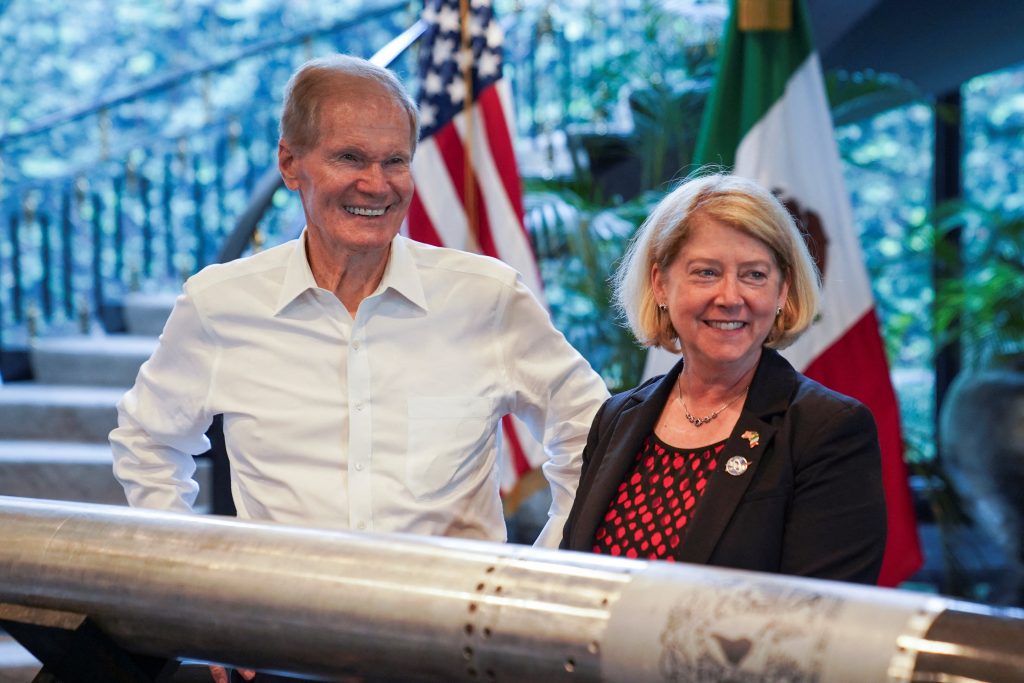During a significant speech in Mexico City this Tuesday, NASA Chief Bill Nelson stressed the critical need for global cooperation in combating climate change and curbing greenhouse gas emissions. Highlighting the severe impact of methane leaks on global warming, Nelson emphasized that while solutions are available, they demand urgent and expansive implementation.
“Methane leaks, in particular, pose a daunting challenge due to their potent impact on global warming, far exceeding that of carbon dioxide in the short term,” Nelson said, advocating for international efforts to address these and other environmental issues collectively. He underscored the pivotal role that satellites play in modern climate research, enhancing our comprehension of climate dynamics and enabling the detection of elusive sources of greenhouse emissions that were previously undetectable.
Nelson pointed out that NASA is not only focused on advancing satellite technology but is also dedicated to making satellite data more accessible and educating the public and policymakers on how to leverage this information effectively. This effort is crucial for monitoring climate phenomena and pinpointing methane emissions, which are a significant contributor to the rapid pace of global warming.
During the event, NASA Deputy Administrator Pam Melroy echoed Nelson’s sentiments, highlighting the global nature of climate challenges. “It’s very important to recognize that no single country can tackle these problems alone,” Melroy stated. She elaborated on the importance of collaborative international strategies in addressing environmental issues effectively.
Earlier in the day, before the speech, Nelson and Melroy, both former astronauts, met with Mexican President Andres Manuel Lopez Obrador and other senior officials. The discussions focused on fostering collaborative approaches to environmental issues and exploring how best to utilize advancements in technology and data sharing to drive significant changes in environmental policy and practices.
These discussions underline the ongoing commitment of NASA and other international bodies to not only furthering scientific research and data collection but also ensuring that this information leads to actionable strategies in the battle against climate change. The emphasis on collaboration and data transparency serves as a rallying call for countries around the world to unite in this urgent environmental endeavor.





